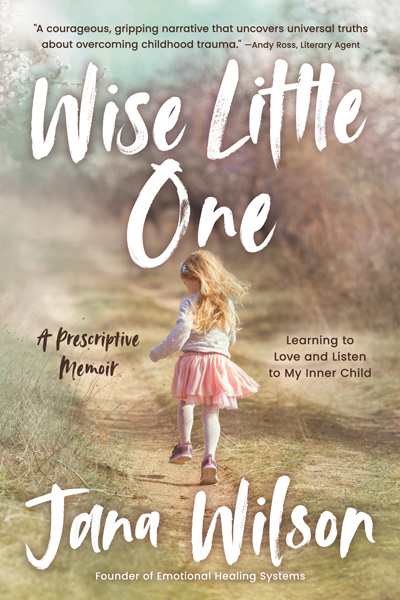
Estimated reading time: 5 minutes
Childhood abandonment can create deep psychological trauma, affecting adulthood on many levels — but there is a path to healing
—
Abandonment can affect us deeply—parents’ divorce, death of close family member, neglectful caregivers, or a significant other. It can make us feel as if there is something innately wrong with us; that we’re not good enough for anyone or anything.
We begin to find fault in ourselves, and our self-esteem plummets. However, learning to take responsibility and connect with your emotional self will bring peace into your life.
How Does Abandonment Affect Us?
Fear of abandonment develops, causing an unhealthy fear that people, places, and things we are attached to will eventually leave or reject us. Abandonment issues are rooted in childhood and are steeped in trauma. Once we experience abandonment in our formative years, we begin to abandon ourselves. Self-abandonment can cause an individual to feel unworthy of love and happiness.
Feelings of abandonment can be triggered through a multitude of events at any life stage; however, they stem from our formative years. These events include:
- Abuse
- Death of a loved one
- Medical and mental illness
- Romantic rejection
- Workplace mistreatment
- Financial stress or poverty
Common signs that someone is experiencing fear of abandonment are anxiety, suspicion, insecurity, trust issues, commitment issues, quick attachment, emotional unavailability, and inability to accept disappointment and rejection.
And this is where self-responsibility comes into play.
What Is Self-Responsibility?
Self-responsibility is taking 100% responsibility for the results of your life. It means that you decide to no longer be a victim of what happens to you, but rather become the creator of your future in the present moment.
There is no one to blame for your feelings; when you are self-responsible you accept that you and you alone are creating the experience of your life. You’re able to accept yourself exactly as you are now — your personality, appearance, strengths, and weaknesses. You recognize that your value doesn’t come from approval and love from others. You also recognize that your value isn’t tied to looks or performance — these are the two most common ways we get love as children, either by ‘looking right’ or ‘doing it right’.
Self-responsibility is one of the most important shifts you can make to improve your mental and emotional health. When you operate from a place of being fully responsible for yourself you become immune to criticism from others. Your internal reference point is solely acceptance of self, not approval from the outside.
When someone doesn’t have a deep connection with themselves, they think they’ll be able to achieve it through accomplishments or acknowledgement from others — these are temporary and fleeting.
Intimacy is what an individual needs to feel close to themselves and others. Intimacy = In-To-Me-I-See. By cultivating a deep connection with yourself, you will begin to see that your relationships to others simply mirror your relationship with yourself. When you know your true self, you are able to show up authentically and are truly comfortable in your own skin.
4 Steps to Take Responsibility for Yourself
Let’s look at some of the ways that can help improve our ability to accept ourselves:
- Forgive Yourself — If there are things in your past that you’re not proud of or have acted in ways that don’t hold up to who you want to be, it’s time to forgive yourself. Forgiveness is accepting the past has happened, not holding onto the thought that it shouldn’t have happened. Asking yourself, ‘What is the lesson?’ from the past experience, will open the door to true forgiveness. When we gain lessons in experiences, we will learn and we won’t continue to repeat negative patterns.
- Have Self–Compassion — Be nice to yourself. Talk to yourself as you would a child. Our feeling self is the ‘inner child’. The part of you that was abandoned was when you were too small to feel the pain of helplessness and heartbreak. Journal and get your thoughts out on paper, write a letter to your little self and apologize for abandoning her/him. Give yourself space, time and understanding during challenging and stressful times. Hold yourself like a loving parent would connect with a scared child.
- Celebrate Yourself —Give yourself a pat on the back for the growth and desire to become intimate with yourself and take 100% responsibility.
- Surround Yourself with Conscious People —Despite whatever trauma exists in our past, it’s important to surround yourself with people who mirror to you the love, respect, attention and care you’re giving to yourself.
The Bottom Line
If we grew up in a family that left us feeling abandoned, we don’t have to continue being burdened by those feelings as we make our way through life.
Healthy adults cannot be abandoned.
If you’re feeling abandoned, look within and see where you have abandoned yourself. Where have you not set boundaries? Where have you made others’ feelings more important than your own? Where do you need to speak up and advocate for yourself? There are many paths to support you to find an inner resource of connection, love, meaning and purpose. Among the most powerful are a daily meditation practice, and reparenting and nurturing your ‘inner child’.
Self-responsibility is a journey that will allow you to evolve into a healthy, loving adult in the aftermath of abandonment.
You may also enjoy reading Breaking the Cycle: Healing from Complex Trauma, by Laurie B. Timms.
